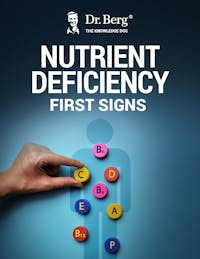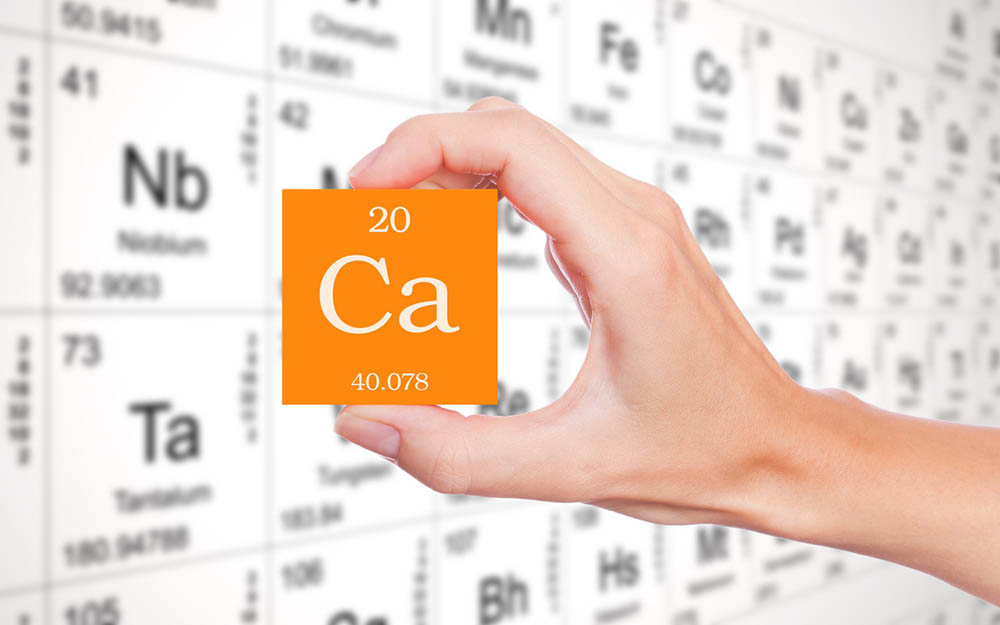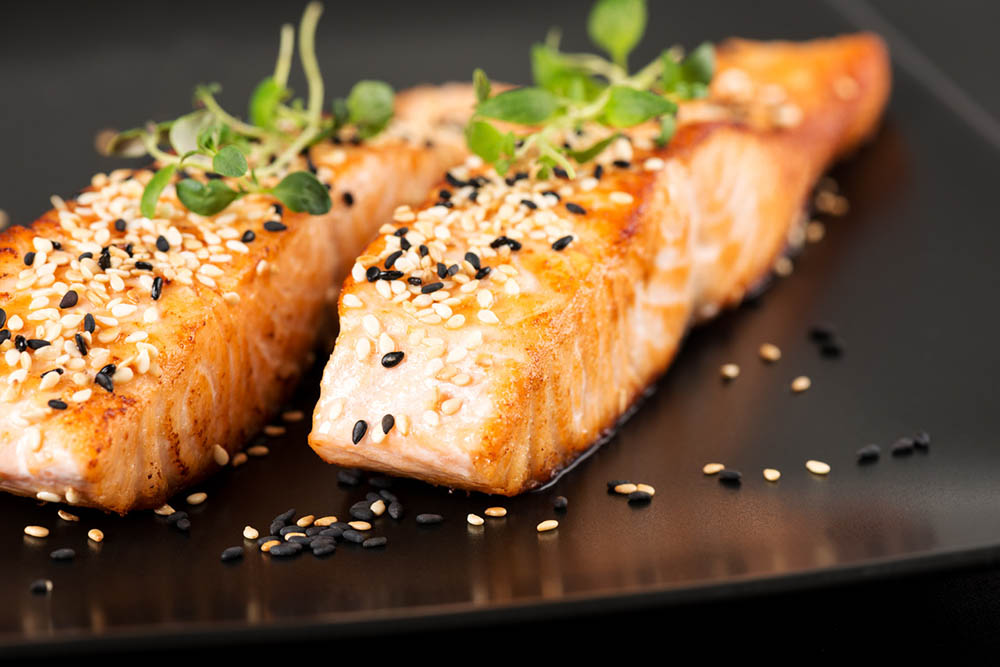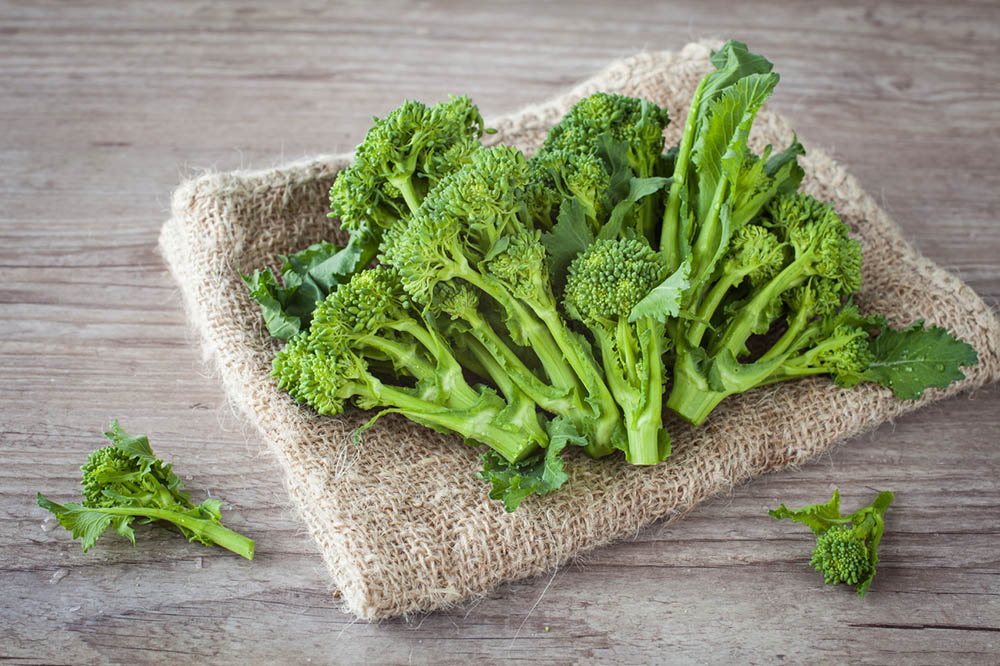Best Sources of Calcium

25 Top Supplements That Really Work
Discover the most effective supplements to promote a healthy body
Learn about key supplements to support digestion, brain function, energy, and more
Understand how to manage common health issues with specific supplements

25 Top Supplements That Really Work
Discover the most effective supplements to promote a healthy body
Learn about key supplements to support digestion, brain function, energy, and more
Understand how to manage common health issues with specific supplements

25 Top Supplements That Really Work
Discover the most effective supplements to promote a healthy body
Learn about key supplements to support digestion, brain function, energy, and more
Understand how to manage common health issues with specific supplements

25 Top Supplements That Really Work
Discover the most effective supplements to promote a healthy body
Learn about key supplements to support digestion, brain function, energy, and more
Understand how to manage common health issues with specific supplements

25 Top Supplements That Really Work
Discover the most effective supplements to promote a healthy body
Learn about key supplements to support digestion, brain function, energy, and more
Understand how to manage common health issues with specific supplements

25 Top Supplements That Really Work
Discover the most effective supplements to promote a healthy body
Learn about key supplements to support digestion, brain function, energy, and more
Understand how to manage common health issues with specific supplements

25 Top Supplements That Really Work
Discover the most effective supplements to promote a healthy body
Learn about key supplements to support digestion, brain function, energy, and more
Understand how to manage common health issues with specific supplements

25 Top Supplements That Really Work
Discover the most effective supplements to promote a healthy body
Learn about key supplements to support digestion, brain function, energy, and more
Understand how to manage common health issues with specific supplements

25 Top Supplements That Really Work
Discover the most effective supplements to promote a healthy body
Learn about key supplements to support digestion, brain function, energy, and more
Understand how to manage common health issues with specific supplements

25 Top Supplements That Really Work
Discover the most effective supplements to promote a healthy body
Learn about key supplements to support digestion, brain function, energy, and more
Understand how to manage common health issues with specific supplements

25 Top Supplements That Really Work
Discover the most effective supplements to promote a healthy body
Learn about key supplements to support digestion, brain function, energy, and more
Understand how to manage common health issues with specific supplements

25 Top Supplements That Really Work
Discover the most effective supplements to promote a healthy body
Learn about key supplements to support digestion, brain function, energy, and more
Understand how to manage common health issues with specific supplements

25 Top Supplements That Really Work
Discover the most effective supplements to promote a healthy body
Learn about key supplements to support digestion, brain function, energy, and more
Understand how to manage common health issues with specific supplements

25 Top Supplements That Really Work
Discover the most effective supplements to promote a healthy body
Learn about key supplements to support digestion, brain function, energy, and more
Understand how to manage common health issues with specific supplements

25 Top Supplements That Really Work
Discover the most effective supplements to promote a healthy body
Learn about key supplements to support digestion, brain function, energy, and more
Understand how to manage common health issues with specific supplements

25 Top Supplements That Really Work
Discover the most effective supplements to promote a healthy body
Learn about key supplements to support digestion, brain function, energy, and more
Understand how to manage common health issues with specific supplements

25 Top Supplements That Really Work
Discover the most effective supplements to promote a healthy body
Learn about key supplements to support digestion, brain function, energy, and more
Understand how to manage common health issues with specific supplements

25 Top Supplements That Really Work
Discover the most effective supplements to promote a healthy body
Learn about key supplements to support digestion, brain function, energy, and more
Understand how to manage common health issues with specific supplements

25 Top Supplements That Really Work
Discover the most effective supplements to promote a healthy body
Learn about key supplements to support digestion, brain function, energy, and more
Understand how to manage common health issues with specific supplements

25 Top Supplements That Really Work
Discover the most effective supplements to promote a healthy body
Learn about key supplements to support digestion, brain function, energy, and more
Understand how to manage common health issues with specific supplements

25 Top Supplements That Really Work
Discover the most effective supplements to promote a healthy body
Learn about key supplements to support digestion, brain function, energy, and more
Understand how to manage common health issues with specific supplements

25 Top Supplements That Really Work
Discover the most effective supplements to promote a healthy body
Learn about key supplements to support digestion, brain function, energy, and more
Understand how to manage common health issues with specific supplements

25 Top Supplements That Really Work
Discover the most effective supplements to promote a healthy body
Learn about key supplements to support digestion, brain function, energy, and more
Understand how to manage common health issues with specific supplements

25 Top Supplements That Really Work
Discover the most effective supplements to promote a healthy body
Learn about key supplements to support digestion, brain function, energy, and more
Understand how to manage common health issues with specific supplements

The First Signs of a Nutrient Deficiency
Learn how to recognize early symptoms related to specific nutrient deficiencies
Receive a downloadable list of early indicators your body is lacking key nutrients

The First Signs of a Nutrient Deficiency
Learn how to recognize early symptoms related to specific nutrient deficiencies
Receive a downloadable list of early indicators your body is lacking key nutrients

The First Signs of a Nutrient Deficiency
Learn how to recognize early symptoms related to specific nutrient deficiencies
Receive a downloadable list of early indicators your body is lacking key nutrients

The First Signs of a Nutrient Deficiency
Learn how to recognize early symptoms related to specific nutrient deficiencies
Receive a downloadable list of early indicators your body is lacking key nutrients

The First Signs of a Nutrient Deficiency
Learn how to recognize early symptoms related to specific nutrient deficiencies
Receive a downloadable list of early indicators your body is lacking key nutrients

The First Signs of a Nutrient Deficiency
Learn how to recognize early symptoms related to specific nutrient deficiencies
Receive a downloadable list of early indicators your body is lacking key nutrients

The First Signs of a Nutrient Deficiency
Learn how to recognize early symptoms related to specific nutrient deficiencies
Receive a downloadable list of early indicators your body is lacking key nutrients

The First Signs of a Nutrient Deficiency
Learn how to recognize early symptoms related to specific nutrient deficiencies
Receive a downloadable list of early indicators your body is lacking key nutrients

The First Signs of a Nutrient Deficiency
Learn how to recognize early symptoms related to specific nutrient deficiencies
Receive a downloadable list of early indicators your body is lacking key nutrients

The First Signs of a Nutrient Deficiency
Learn how to recognize early symptoms related to specific nutrient deficiencies
Receive a downloadable list of early indicators your body is lacking key nutrients

The First Signs of a Nutrient Deficiency
Learn how to recognize early symptoms related to specific nutrient deficiencies
Receive a downloadable list of early indicators your body is lacking key nutrients

The First Signs of a Nutrient Deficiency
Learn how to recognize early symptoms related to specific nutrient deficiencies
Receive a downloadable list of early indicators your body is lacking key nutrients

The First Signs of a Nutrient Deficiency
Learn how to recognize early symptoms related to specific nutrient deficiencies
Receive a downloadable list of early indicators your body is lacking key nutrients

The First Signs of a Nutrient Deficiency
Learn how to recognize early symptoms related to specific nutrient deficiencies
Receive a downloadable list of early indicators your body is lacking key nutrients

The First Signs of a Nutrient Deficiency
Learn how to recognize early symptoms related to specific nutrient deficiencies
Receive a downloadable list of early indicators your body is lacking key nutrients

The First Signs of a Nutrient Deficiency
Learn how to recognize early symptoms related to specific nutrient deficiencies
Receive a downloadable list of early indicators your body is lacking key nutrients

The First Signs of a Nutrient Deficiency
Learn how to recognize early symptoms related to specific nutrient deficiencies
Receive a downloadable list of early indicators your body is lacking key nutrients

The First Signs of a Nutrient Deficiency
Learn how to recognize early symptoms related to specific nutrient deficiencies
Receive a downloadable list of early indicators your body is lacking key nutrients

The First Signs of a Nutrient Deficiency
Learn how to recognize early symptoms related to specific nutrient deficiencies
Receive a downloadable list of early indicators your body is lacking key nutrients

The First Signs of a Nutrient Deficiency
Learn how to recognize early symptoms related to specific nutrient deficiencies
Receive a downloadable list of early indicators your body is lacking key nutrients

The First Signs of a Nutrient Deficiency
Learn how to recognize early symptoms related to specific nutrient deficiencies
Receive a downloadable list of early indicators your body is lacking key nutrients

The First Signs of a Nutrient Deficiency
Learn how to recognize early symptoms related to specific nutrient deficiencies
Receive a downloadable list of early indicators your body is lacking key nutrients

The First Signs of a Nutrient Deficiency
Learn how to recognize early symptoms related to specific nutrient deficiencies
Receive a downloadable list of early indicators your body is lacking key nutrients

The First Signs of a Nutrient Deficiency
Learn how to recognize early symptoms related to specific nutrient deficiencies
Receive a downloadable list of early indicators your body is lacking key nutrients
You have probably heard before that it is important to get plenty of calcium into your diet. But there are a lot of misconceptions when it comes to the best sources of calcium.
Should you be taking a calcium supplement? Is milk the way to go? Or are there other good sources of calcium that you can include in your diet?
If you want to know the healthiest way to get your calcium, then read on.
In this article, I will explain:
Why do we need calcium?
Calcium is one of the essential nutrients your body needs to function properly. Most of us associate calcium with bone health. But it turns out that calcium is involved in so much more than that. The importance of calcium in the body goes way beyond the bones.

Some of the things calcium does in the body include:
Builds your bones.
Allows your cells to communicate with each other.
Helps your muscles to contract and lets you move your body.
Lets your blood clot when needed.
Keeps your teeth and nails healthy.
Supports the release of hormones.
And that is really just the start.
To stay healthy, most adults need about 1,000 mg of calcium every day. When we don't get enough of it, many things can start to go wrong.
The symptoms of calcium deficiency include:
Insomnia
Muscle cramps
Brittle nails
Tooth decay
Bone loss
Red/purple spots
Tetany (twitching)
Pins and needles sensations around the mouth and lips
So how can you get enough? If you think supplements are the way to go, read on to discover why those shouldn't be your go-to.
The problem with calcium supplements
You might be thinking, "Well I take a calcium supplement, so isn't that good enough?"
Unfortunately, most calcium supplements are not effective. They mostly come in the form of calcium carbonate, which is essentially like eating rocks. It is like limestone, and you are basically chewing cement from the side of a building.
In fact, calcium supplements don't help your bones, and they can actually make things worse in your body. For example, they can increase your risk of cardiovascular incidents. Learn more about the risks of taking a calcium supplement here.
I do not really recommend calcium supplementation. Instead, I think you should get your calcium from your diet, by eating foods packed with nutrients.
Choose food sources instead
The best way to get calcium is to eat calcium-rich foods. Eating a wholesome diet with lots of nutrient-rich vegetables and things like seeds, fish, and more can be the healthiest way to boost your calcium intake.
Dairy products are best known for their calcium content. So people who are vegan or lactose intolerant may wonder if they can really get enough calcium from their food. But there are so many other healthy foods that are great sources of this nutrient. I don't even recommend including milk or yogurt in the diet. Milk is usually pasteurized and not really a healthy dairy product. And yogurt is full of sugar.
You don't need milk to get bone-building calcium into your diet.
Below, I list some really good sources of calcium (many of which are dairy-free).

7 of the best sources of calcium
Food sources of calcium should be natural, high quality, and good for your body. I'm not talking pasteurized milk or sugary, calcium-fortified orange juice. I'm talking whole, unprocessed foods.
These top calcium foods offer something for everyone. From vegetables to seeds to fish to cheese, you can easily get enough calcium from them whether you need non-dairy, vegan, or gluten-free options.
1. Cheese
I am from Wisconsin, and I eat a lot of cheese. I love it. Cheese is a dairy food that I believe is a healthy option when it comes to calcium. It contains a large amount of bioavailable calcium, meaning your body absorbs it well. Just make sure that it is organic, grass-fed, and free from hormones. Learn more about choosing healthy dairy products here.
How much it contains: 240 mg calcium in 1 oz.
2. Sesame seeds
Many seeds, like sesame seeds, are calcium-containing foods. And the awesome thing is that you don't need to eat much of them to get a good amount of calcium. They make for a great topping on things like salad, Asian-style recipes, and more. Sprinkle them on your meal for an extra calcium boost.
How much it contains: 90 mg calcium in 1 teaspoon.
3. Tahini
Tahini is another great option. It is sesame seed butter. Easy to find in most grocery stores, tahini is a great ingredient to experiment cooking with. Blend it into sauces and dressings for a rich flavor, or make dips out of it. Learn about the unique benefits of tahini here.
How much it contains: 63 mg calcium in 1 tablespoon.
4. Sardines
An excellent source of this nutrient, sardines are great for the seafood lovers out there. I think sardines are one of the ultimate keto diet foods. They are full of healthy fat, good protein, and so much nutrition. They are also a good source of vitamin D, which I will explain later is important for absorbing and transporting calcium. Try out this sardine dip recipe.
How much it contains: 370 mg calcium in 1 can.
5. Kale
Leafy green vegetables like kale are calcium-rich foods. Kale is an amazing food if you are into healthy eating. It's good for so many different things in your body. It also has magnesium in it. I'll explain below why it is helpful to consume calcium and magnesium at the same time.
How much it contains: 94 mg calcium in 1 cup.
6. Broccoli
Broccoli is a cruciferous vegetable with so many health benefits. And it has a super high calcium content, too (almost twice that of kale). Broccoli is great fresh in salads, used with dip, steamed, sautéed into stir-fries, and so much more. Try out this recipe for broccoli fritters to really mix it up with this healthy vegetable.
How much it contains: 178 mg calcium in 1 cup.
7. Salmon
Salmon is a natural health food. It is packed with omega-3 fatty acids and vitamins, like vitamin A, vitamin D, and B vitamins. And it is also a calcium-rich option. Just make sure it is wild-caught and not farm-raised salmon, which can have a lot of problems.
How much it contains: 180 mg calcium in 3 oz.
As you can see from this diverse list of good calcium foods, it isn't hard to get calcium into your diet. Along with those listed above, try eating some other good options like collard greens, chia seeds, bok choy, and other leafy greens.
Other things to consider
As long as you eat plenty of the healthy foods above, it isn't that difficult to get enough calcium into your diet.
But if you really want to make the most of the calcium you consume, you will also need to help your body to absorb and use calcium more efficiently.
Here are some additional things you can do to help out:
1. Consume magnesium-rich leafy greens
Calcium and magnesium work together in the body. You need magnesium alongside calcium. In nature, they often come together, as in leafy green foods (like kale, spinach, Brussel's sprouts, and bok choy). These are great foods to eat to make sure these two minerals are working harmoniously.
2. Get more vitamin D
If you are deficient in vitamin D, you won't be able to transport or absorb calcium. Vitamin D is needed for calcium absorption. Healthy sun exposure, fish like sardines or salmon, cod liver oil, or a vitamin D3 supplement are all ways to get more.
3. Boost vitamin K2
Vitamin K2 is needed to mobilize calcium. If you are deficient in vitamin K2, calcium will get stuck and start to plug up soft tissues, joints, arteries, etc. That can cause a whole bunch of issues. So make sure you get enough of this vitamin to make sure calcium is mobilized properly.
4. Make sure your stomach is acidic
You'll have a hard time absorbing calcium if your stomach is too alkaline. You need a strong acid stomach to absorb it. So if you have acid reflux and are taking antacids, chances are you won't be getting much. Learn more about the importance of stomach acid here.

Conclusion
Calcium is an essential nutrient that does far more than just bone building in your body.
Make sure you get enough of this important mineral. But don't go off and buy a generic calcium supplement. Those can be problematic and actually quite bad for your body.
The best way is to eat wholesome, calcium-rich foods. Fortunately, these come in a wide variety with options for everyone to find a favorite.
I recommend the following foods if you are looking to boost your calcium intake:
Cheese
Sesame seeds
Tahini
Sardines
Kale
Broccoli
Salmon
Eating these foods is a great place to start.
You'll also want to make sure you do the following to make sure the calcium is absorbed and used properly in the body:
Consume magnesium with calcium by eating leafy greens.
Get plenty of vitamin D.
Boost vitamin K2.
Keep your stomach acidic.
What are your favorite high calcium foods? Share your ideas in the comments below.
Up Next:
Previous blog
Best Stretch for ScoliosisNext blog
Whats Worse Than SugarTags

Popular
08/21/2024
55.7K views
02/23/2025
46.8K views
11/18/2024
281K views
03/18/2024
11/21/2022




